Related Research Articles
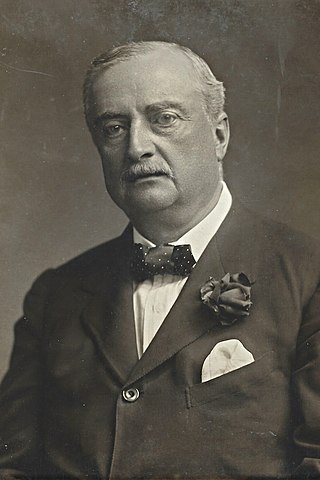
John Edward Redmond was an Irish nationalist politician, barrister, and MP in the House of Commons of the United Kingdom. He was best known as leader of the moderate Irish Parliamentary Party (IPP) from 1900 until his death in 1918. He was also the leader of the paramilitary organisation the Irish National Volunteers (INV).
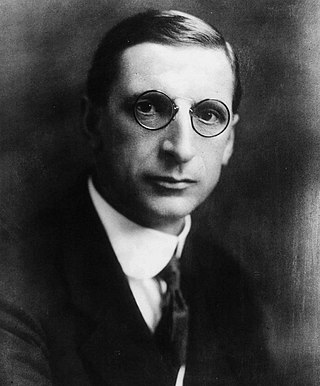
The Irish component of the 1918 United Kingdom general election took place on 14 December 1918. It was the final United Kingdom general election to be held throughout Ireland, as the next election would happen following Irish independence. It is a key moment in modern Irish history, seeing the overwhelming defeat of the moderate nationalist Irish Parliamentary Party (IPP), which had dominated the Irish political landscape since the 1880s, and a landslide victory for the radical Sinn Féin party. Sinn Féin had never previously stood in a general election, but had won six seats in by-elections in 1917–1918. The party had vowed in its manifesto to establish an independent Irish Republic. In Ulster, however, the Unionist Party was the most successful party.
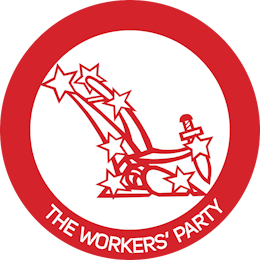
The Workers' Party is an Irish republican, Marxist–Leninist communist party active in both the Republic of Ireland and Northern Ireland.
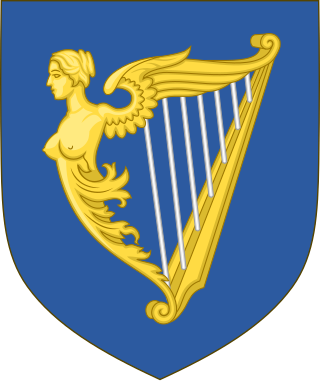
The Irish Parliamentary Party was formed in 1874 by Isaac Butt, the leader of the Nationalist Party, replacing the Home Rule League, as official parliamentary party for Irish nationalist Members of Parliament (MPs) elected to the House of Commons at Westminster within the United Kingdom of Great Britain and Ireland up until 1918. Its central objectives were legislative independence for Ireland and land reform. Its constitutional movement was instrumental in laying the groundwork for Irish self-government through three Irish Home Rule bills.

The 1918 United Kingdom general election was called immediately after the Armistice with Germany which ended the First World War, and was held on Saturday, 14 December 1918. The governing coalition, under Prime Minister David Lloyd George, sent letters of endorsement to candidates who supported the coalition government. These were nicknamed "Coalition Coupons", and led to the election being known as the "coupon election". The result was a massive landslide in favour of the coalition, comprising primarily the Conservatives and Coalition Liberals, with massive losses for Liberals who were not endorsed. Nearly all the Liberal MPs without coupons were defeated, including party leader H. H. Asquith.

South Down is a parliamentary constituency in the United Kingdom House of Commons. The current MP is Chris Hazzard of Sinn Féin.
Abstentionism is the political practice of standing for election to a deliberative assembly while refusing to take up any seats won or otherwise participate in the assembly's business. Abstentionism differs from an election boycott in that abstentionists participate in the election itself. Abstentionism has been used by Irish republican political movements in the United Kingdom and Ireland since the early 19th century. It was also used by Hungarian and Czech nationalists in the Austrian Imperial Council in the 1860s.

The All-for-Ireland League (AFIL) was an Irish, Munster-based political party (1909–1918). Founded by William O'Brien MP, it generated a new national movement to achieve agreement between the different parties concerned on the historically difficult aim of Home Rule for the whole of Ireland. The AFIL established itself as a separate non-sectarian party in the House of Commons of the United Kingdom of Great Britain and Ireland, binding a group of independent nationalists MPs to pursue a broader concept of Irish nationalism, a consensus of political brotherhood and reconciliation among all Irishmen, primarily to win Unionist consent to an All-Ireland parliamentary settlement.

County Waterford was a parliamentary constituency in Ireland, represented in the British House of Commons.
Waterford City was a United Kingdom parliamentary constituency, in southeast Ireland.
West Cork, a division of County Cork, was a parliamentary constituency in Ireland, represented in the Parliament of the United Kingdom. From 1885 to 1922 it returned one Member of Parliament (MP) to the House of Commons of the United Kingdom of Great Britain and Ireland.
South Kilkenny was a UK Parliament constituency in Ireland.
South Fermanagh was a UK Parliament constituency in Ireland.

William Archer Redmond DSO was an Irish nationalist politician. He served as an MP in the House of Commons of the United Kingdom of Great Britain and Ireland as well as a Teachta Dála (TD) of Dáil Éireann. He was one of the few people to have served in both the House of Commons and in the Oireachtas.
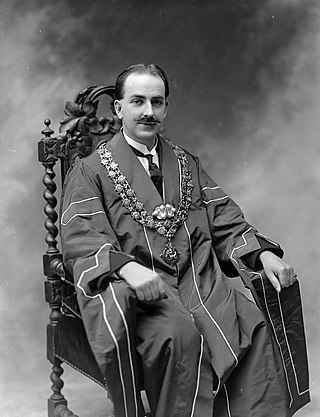
Vincent Joseph White was an Irish politician and medical practitioner.

Elections were held in January and June 1920 for the various county and district councils of Ireland. The elections were organised by the Dublin Castle administration under the law of the then United Kingdom of Great Britain and Ireland (UK), and held while the Irish War of Independence was pitting UK forces against those of the Irish Republic proclaimed in 1919 by the First Dáil. Elections were held in two stages: borough and urban district councils in January; and county and rural district councils in June. Sinn Féin, which had established the First Dáil, won control of many of the councils, which subsequently broke contact with Dublin Castle's Local Government Board for Ireland and instead recognised the republican Department of Local Government. The election results provide historians with a barometer of public opinion in what would be the last elections administered on an all-island basis: the Government of Ireland Act 1920 passed at the end of the year effected the partition of Ireland from 1921, though the elections for the two home rule Parliaments envisaged by it were held on the same day; no further elections would be held simultaneously across the island of Ireland until 1979, when representatives of the Republic of Ireland and Northern Ireland to the European Parliament were elected. The next local elections were held in 1924 in Northern Ireland and in 1925 in the Irish Free State.
The 1918 East Cavan by-election was a parliamentary by-election held for the United Kingdom House of Commons constituency of East Cavan on 20 June 1918. The election was caused by the death of the sitting member, Samuel Young of the Irish Parliamentary Party.
The 1918 East Tyrone by-election was held on 3 April 1918. The by-election was held due to the resignation of the incumbent Irish Parliamentary Party MP, William Redmond. It was won by the Irish Parliamentary candidate Thomas Harbison.
The 1916 West Cork by-election was held on 15 November 1916. The by-election was held due to the death of the incumbent All-for-Ireland League MP, James Gilhooly. It was won by the Irish Parliamentary Party candidate Daniel O'Leary.
References
- ↑ Craig, F.W.S. (1987). Chronology of British Parliamentary By-elections 1833–1987. Chichester: Parliamentary Research Services. p. 301.
- ↑ Walker, Brian Mercer (1978). Parliamentary Election Results in Ireland, 1801-1922. Dublin: Royal Irish Academy. p. 185. ISBN 0-901714-12-7.
- ↑ The Constitutional Year Book for 1919. London: National Unionist Association. 1919. p. 339.
- ↑ Leigh Rayment's Historical List of MPs
- ↑ "Waterford Election Result". Irish Times. 30 March 1918.
- ↑ "The Waterford Election". Cork Examiner. 15 March 1918.
- ↑ "Waterford Election Result". Irish Times. 30 March 1918.